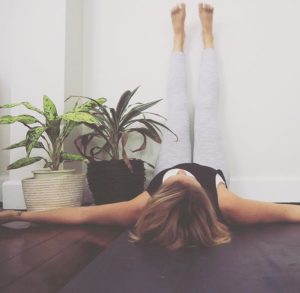Sleepless in the City?
So many of us, myself included, struggle with getting enough sleep.

Getting good quality rest is crucially important for our wellbeing. Aside from the obvious side effects of feeling foggy, unmotivated, depleted and cranky from lack of sleep, there are a number of more serious consequences to our health. These include cognitive impairment, memory loss, reduced immune function, higher risk of stroke, heart disease and breast cancer, and a higher incidence of obesity, depression and anxiety.
But despite us knowing that we need to get enough rest, sometimes it’s just not possible!
Whether it’s a new baby, finances, a snoring partner or just an inability to shut off after work that keeps us awake, we stumble bleary eyed through the day begging for it to end, often to have the same sleepless night repeat all over again. And again.
So what can we do to break this cycle?
We need to create a routine that encourages the body and mind to slow down, relax and prepare for rest. Here are some tips to help you to do that.
- No blue light late at night
- The light that is emitted from our phones, laptops and TVs stimulates the brain into staying awake. All devices should be turned off at least an hour before you go to bed, preferably longer.
- And absolutely no phones, tvs or ipads in the bedroom. If you like to read before bed read an actual book. If you use your phone as an alarm buy an old fashioned alarm clock. Remove all temptation to switch on and scroll.
2. Relax the body
- Do some yin or restorative yoga to help the calm and settle the body, switching us from fight or flight ‘go’ mode to a state of rest.
For example try 5 minutes with legs up the wall in viparita karani focusing on your breath, or 5 mins in a supported forward fold

- Run a bath with a calming scent like lavender
- Have a hot, soothing drink like a mug of chamomile tea or warmed milk with spices like ginger and cinnamon.
- Try introducing a supplement like magnesium. Studies show magnesium can be effective in treating insomnia.
Please note: if taking at night make sure it’s a pure magnesium tablet or powder not a complex as the other ingredients can be stimulating.

3. Train the mind
- So much of sleeplessness is a result of our inability to shut the mind off after a busy day.
- Try listening to a guided relaxation, a meditation for sleep or a body scan to help you come out of the busy thinking mind and into a state of relaxation. There are tons of great options on the free meditation app Insight Timer
4. Manage your stress during the day
- We need to learn to process the stress we accumulate each day rather than internalizing it.
- Make the time to exercise regularly to release feel good hormones
- Take regular breaks away from your desk. Even if it’s just a 2 minute walk around the office
- Learn to meditate and practice it every day. Even if it’s just for 5 minutes
- Book in treats and activities that make you happy and give you something to look forward to
- Have a support structure of friends, family and professional help that you can talk to.
5. Waking and bedtimes
- When in balance, our natural sleep cycle is early to rise and early to bed.
- We also want to try and wake and retire at the same time each day. Social activity and work commitments can get in the way of this, but if you’re struggling to sleep really try to adhere to a more rigid routine until you’ve broken the cycle
- And for the night owls, most of what we label as this behaviour is a combination of an inability to put the body and mind into a state of rest after a busy day, and some bad habits like staying up late watching TV. Try the steps above for a few weeks and see if it helps reset
- However, if you find you get a big surge of energy around 9pm and really struggle to feel sleepy before 1am then it’s likely things in your body are out of whack. In addition to the above steps, visit a naturopath for help regulating your circadian rhythms and hormones

